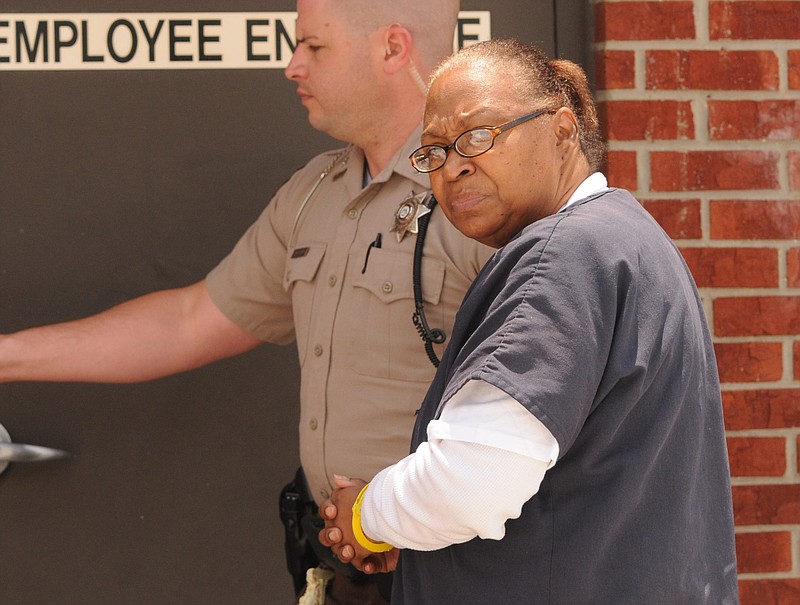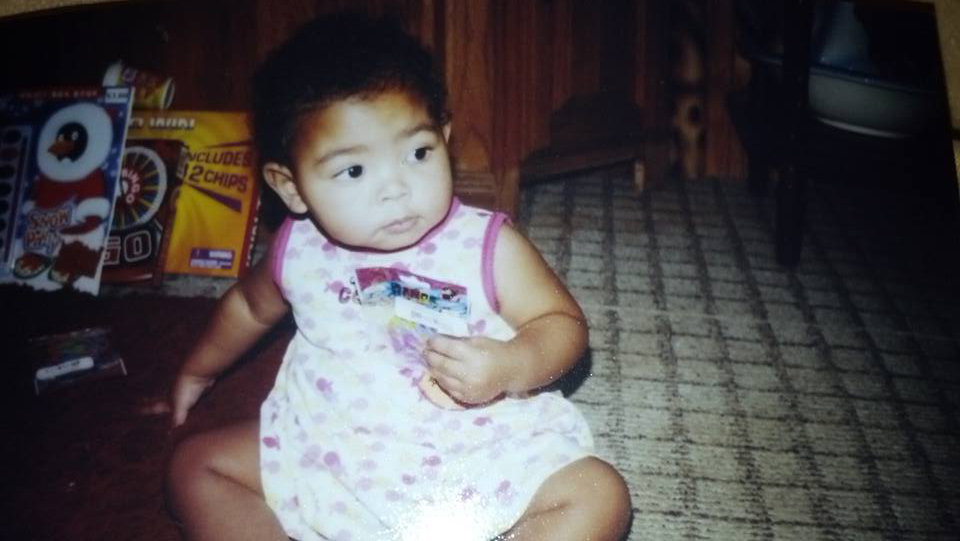RINGGOLD, Ga. - A jury will try to decide today whether Clara Louise Edwards killed her 2-year-old foster child.
After a week of evidence, attorneys made closing arguments Tuesday morning, debating whether Saharah Louise Weatherspoon's death in December 2013 was a malicious act of child abuse or the result of a tipsy toddler slipping down the stairs when nobody was watching. The jury deliberated the case for four hours Tuesday afternoon but failed to reach a verdict before 5 p.m.
The foreman told Superior Court Judge Ralph Van Pelt Jr. his group has reached a conclusion on at least one of the three counts against Edwards, which include cruelty to children, felony murder or malice murder. But the foreman did not say which of those charges they had decided upon, or whether they believed Edwards, 60, was guilty.
Either way, the jury will reconvene at 9 a.m. today to debate the other, undecided charges.
On Dec. 29, 2013, Edwards said, she found Saharah unconscious in the child's bedroom. When Saharah did not respond to her, Edwards and her husband drove to T.C. Thompson Children's Hospital at Erlanger, where doctors say there was no oxygen activity in Saharah's brain. They also found evidence of two blood clots: one a fresh clot, probably from that day, and another from weeks or maybe months earlier.
Edwards told investigators Saharah fell down the steps hours before she slipped into unconsciousness.
Workers at the day care Saharah attended told prosecutors bruises were often spotted on the child's face. So did congregates at Edwards' former church.
On Tuesday, defense attorney Dan Ripper argued the evidence against his client was not strong enough to convict her of murder, a charge that carries a life sentence.
"The state would like to make leaps of faith and rely on circumstantial evidence that clearly points to more than one explanation," Ripper said.
"We can speculate endlessly about what possibilities there are," Lookout Mountain Judicial Circuit District Attorney Herbert "Buzz" Franklin responded, in his own closing argument. "But what is possible is not always reasonable. The only reasonable legal conclusion is that this defendant is guilty."
Previous incidents
In September 2013, some employees at the Gingerbread House Child Care Center worried Edwards was abusing Saharah. They said the child sometimes showed up with bruises and cuts on her face. Edwards often told the day care workers the injuries happened when Saharah fell, that the toddler was wobbly on her feet - the result of developmental delays.
The workers were not convinced, though. They called an investigator from the Division of Children and Family Services.
A month later, DFCS received a second call, this time from congregants of Edwards' former church. The congregants also saw injuries on the child and believed Edwards was hurting her. They said Edwards kept the child to herself and even called Sahara a demon.
After both reports, a DFCS investigator reported he didn't find any evidence of abuse from Edwards. Ripper said this proves Edwards was not abusive.
"These claims would not have been unsubstantiated," if his client actually hit Saharah, Ripper told the jury. "These children would have been taken from their home."
Franklin, meanwhile, said DFCS' investigation cannot be trusted because the department is underfunded.
"We go back to the broken foster care system," he said. "They're overworked."
Ripper also pointed out that Saharah attended day care on the Thursday and Friday before she died. If Edwards had been abusing her, Ripper said, the day care workers would have noticed injuries. Franklin said this isn't necessarily true, that Edwards could have begun abusing Saharah after day care on Friday.
Conflicting doctors
Ripper also relied on the testimony of Dr. Phillip Keen, a retired medical examiner from Arizona who testified for the defense Monday. Keen told the jury the injuries Saharah sustained could have been the result of a fall down the stairs.
Ripper also pointed out that Dr. Daniel Kueter, the neurosurgeon who operated on Saharah, testified last week the fresh blood clot on Saharah's brain could have come from a fall.
But Franklin relied on the testimony of Dr. Lora Darrisaw, a medical examiner for the Georgia Bureau of Investigation. Darrisaw testified Friday that Saharah's death was the result of a homicide, not a child slipping when adults were not around. In particular, Franklin pointed out, doctors found a slew of bruises covering Saharah's face, stomach, arm and back.
Statement to the police
Ripper told the jury to think about Edwards' interview with investigators, which took place around 5 p.m. the day after she took Saharah to the hospital. Edwards said she had not slept, but she presented the same version of events Ripper relied on throughout the trial.
If Edwards were lying about what happened to Saharah, if she had concocted a fake version of events to cover her tracks, Ripper said, she wouldn't have been able to hold up during a one-hour interview when she had not slept for longer than a day.
"You've had an opportunity to see her pure and unvarnished," Ripper said.
But Franklin told the jury not to trust Edwards. Sure, she cried. And sure, she told investigators she had nothing to hide. But some people simply know how to manipulate others.
Franklin compared her to a character from "Leave It to Beaver," a sitcom from the late 1950s and early '60s.
"Eddie Haskell was really nice to parents," Franklin said. "Eddie Haskell was always up to something, up to no good all the time. But he knew when to present himself well."
Contact staff writer Tyler Jett at tjett@timesfreepress.com or at 423-757-6476.

